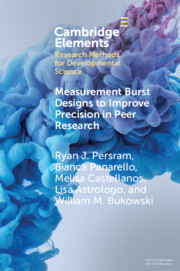Refine search
Actions for selected content:
1 results

Measurement Burst Designs to Improve Precision in Peer Research
-
- Published online:
- 20 September 2021
- Print publication:
- 14 October 2021
-
- Element
- Export citation
